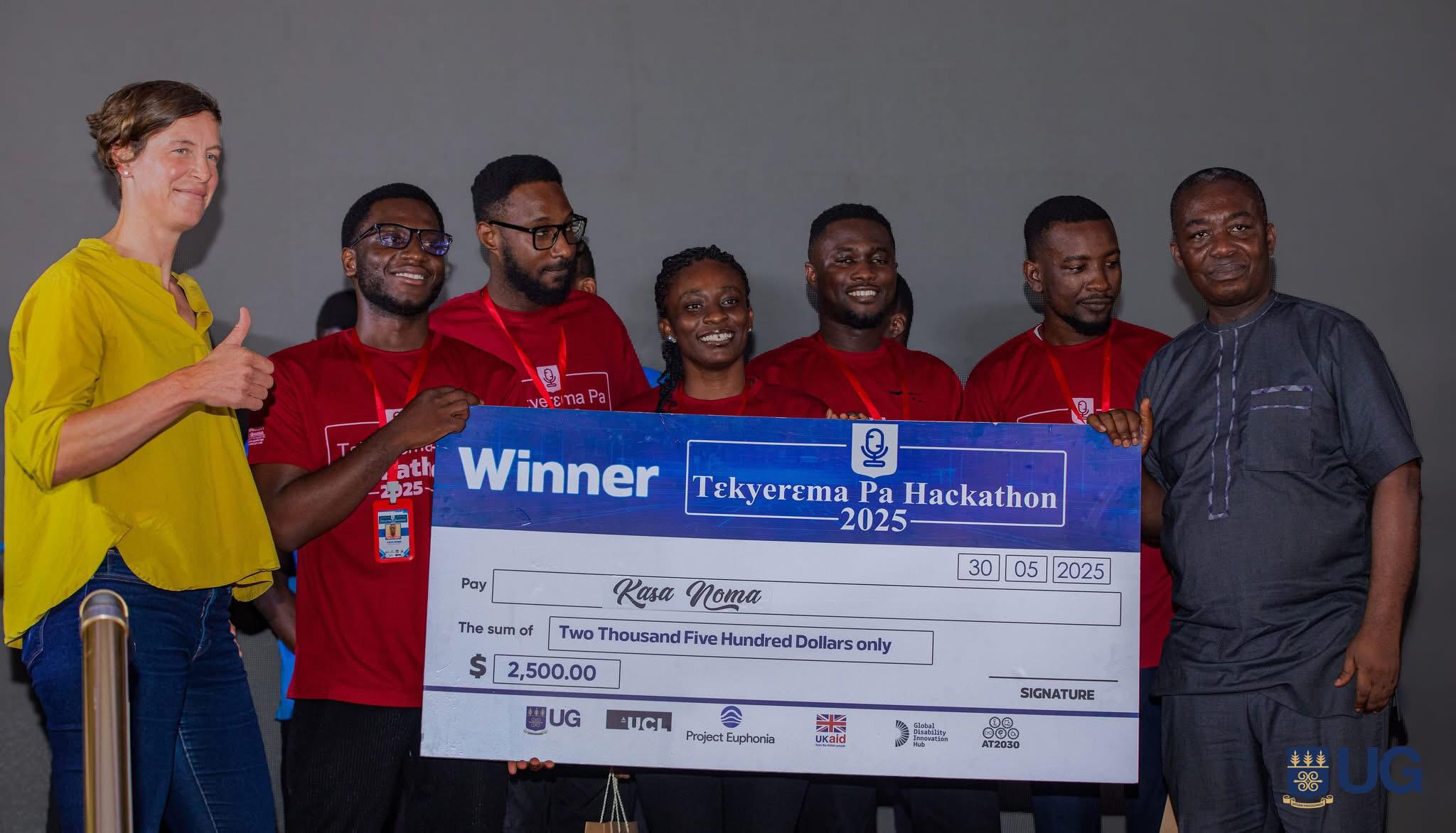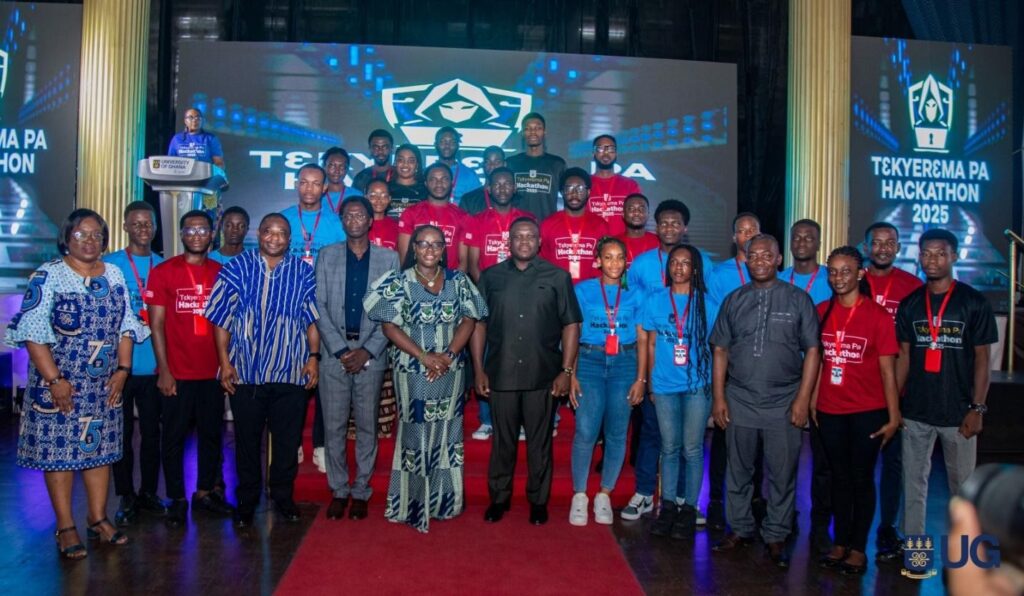
Team Kasa Noma, from the University of Environment and Sustainable Development (UESD), Somanya, Eastern Region emerged champions at the Tɛkyerɛma Pa Hackathon 2025, held from 26th to 30th May 2025 at the University of Ghana, Legon. They took the top prize with a bold and innovative solution, one that empowers people with speech impairments to communicate more easily in Ghanaian languages, particularly Akan. Organised as part of the AT2030 programme—funded by UK Aid and led by the Global Disability Innovation Hub—the event spotlighted the transformative role of artificial intelligence in advancing accessibility and inclusion. The hackathon sought to bridge communication gaps for people with speech impairments through the development of Automatic Speech Recognition (ASR) and Text-to-Speech (TTS) technologies tailored specifically for Ghanaian linguistic and cultural contexts.
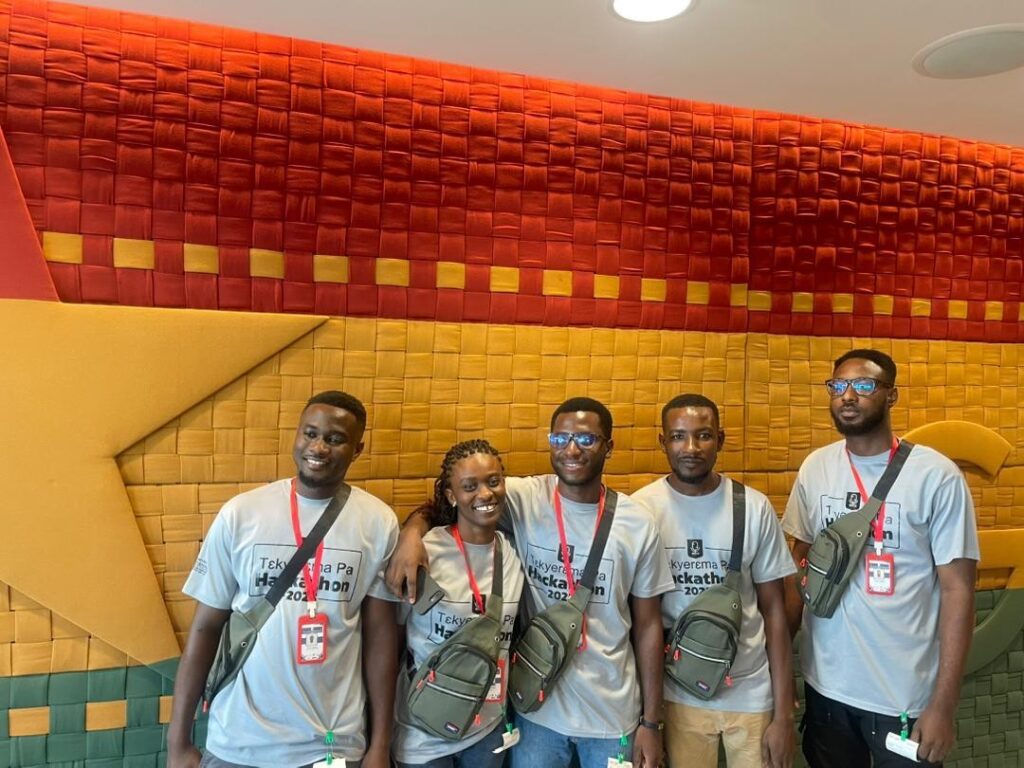
This pioneering initiative brought together University students, researchers, technology enthusiasts, and accessibility advocates from across the globe to co-create inclusive solutions that reflect the linguistic diversity and cultural context of Ghana.
The Tɛkyerɛma Pa Hackathon 2025 followed a well-structured timeline designed to nurture creativity and support innovation at every stage. A total of 48 teams applied, out of which 26 teams were selected to participate in the initial phases. The process began with an awareness campaign and team outreach from April 7 to 15, where the hackathon was promoted and teams received guidance to refine their ideas. This was followed by an online bootcamp from April 21 to 30, introducing participants to essential datasets, tools, and skills. After a screening on May 1st, 16 teams progressed to the ideation sprint, which ran from May 1 to 23, providing an opportunity for teams to brainstorm, prototype, and receive mentor feedback. At the end of this phase, the top five finalists were selected. The finalists arrived at the University of Ghana for in-person mentoring from May 26 to 29, engaging in intensive sessions ahead of the grand finale on May 30, where they presented their solutions and competed for top honours.
The grand finale on May 30, 2025, saw inspiring presentations from five finalist teams, each pushing the boundaries of what’s possible with AI and assistive technology.
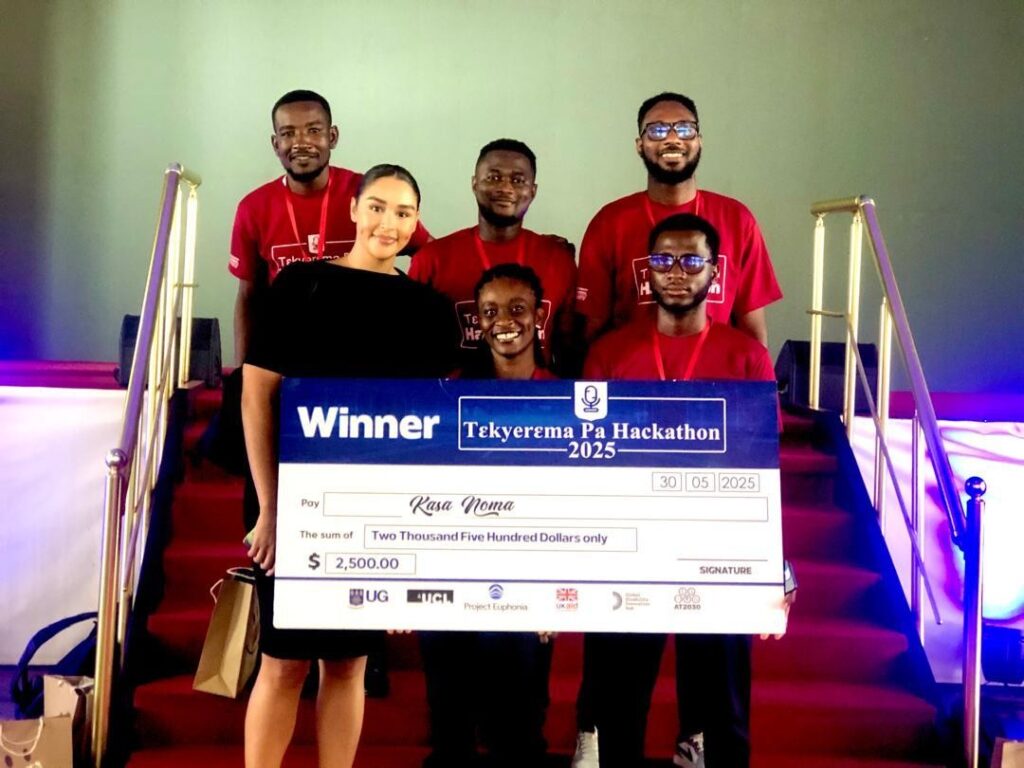
Kasa Noma, a dynamic team from UES, clinched the top spot with a groundbreaking prototype that supports inclusive communication in local languages. Team members John Twasam, Stanley Ofori Kudjordjie, Gideon Doudu Anom, Peleg Teye Darkey, and Nana Abena Kyewaa Gyamfi were awarded $2,500 and souvenirs in recognition of their outstanding work.
Kasa Noma is a user-friendly Speech-to-Text and translation AI speech assistant designed to run seamlessly on the Telegram app, making it easily accessible to millions of users in Ghana and around the world. Created with individuals with speech impairments in mind, Kasa Noma enables real-time communication by transcribing spoken messages (non-standard) into readable transcripts. To use it, a user simply activates the Kasa Noma AI speech assistant within Telegram, taps the microphone, records their speech, and sends the voice note. The AI then instantly converts the audio into readable text, allowing people around the user to understand the message with ease. This tool is completely free to use and offers a simple yet powerful way to foster inclusion and understanding through accessible technology in local and global conversations.
The Tɛkyerɛma Pa Hackathon builds on efforts like UGSpeechdata, Google’s Project Euphonia, and the Global Disability Innovation Hub’s ongoing work to bridge digital divides. It stands as a beacon of what’s possible when innovation meets empathy and when diverse voices are empowered through technology.
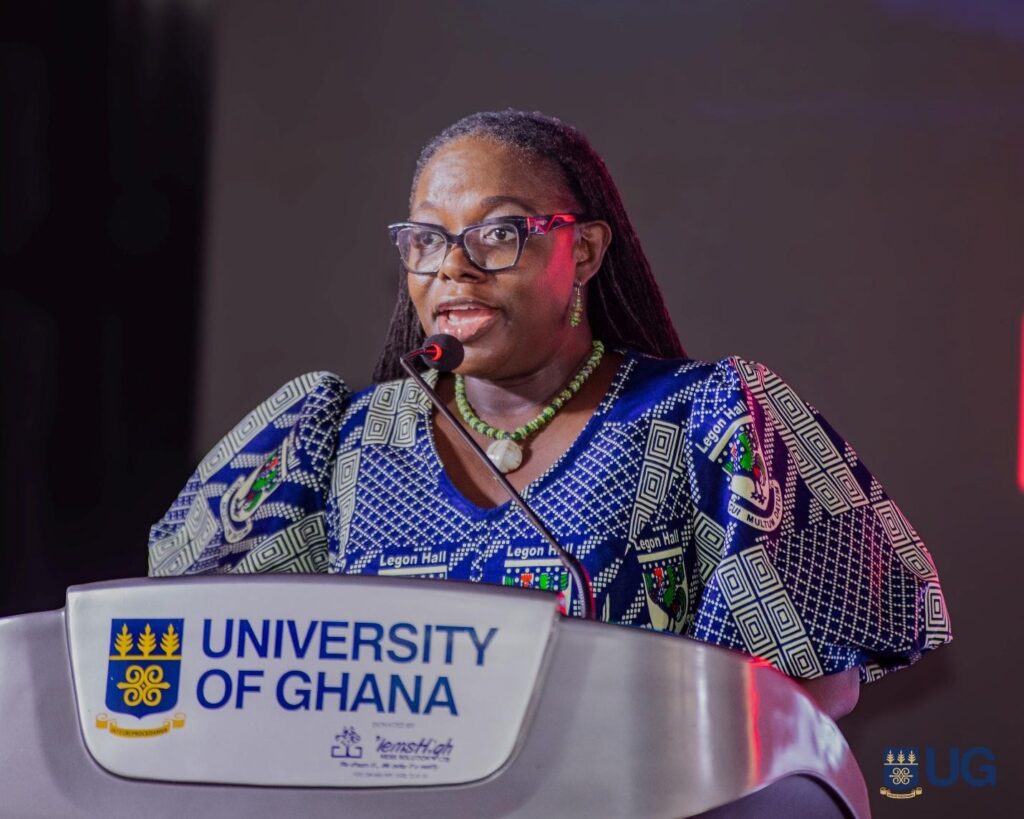
Second place went to Whisperwave, a multidisciplinary industry team that took home $1,500, while Twilight from the University of Ghana secured third place with a prize of $1,000 and souvenirs. Other notable entries came from Kasayie of KNUST and YADAH of UENR, Sunyani, showcasing the impressive depth of talent and creativity within Ghana’s academic and tech communities. The event earned strong endorsements from both national and academic leaders. Vice-Chancellor of the University of Ghana, Prof. Nana Aba Appiah Amfo, lauded the hackathon as a reflection of the University’s dedication to impactful, inclusive research. The Minister of Communications, Digital Technology and Innovations, Hon. Samuel Nartey George, referred to the showcased AI solutions as “restorative technologies” that uphold the fundamental right to be heard in an increasingly digital world. He further pledged 20 thousand cedis from the government to support the top three teams. The Principal Investigator of the Tɛkyerɛma Pa Project. Prof. Isaac Wiafe, highlighted the project’s aim to develop accessible speech technologies using Akan ASR models, enabling individuals with speech impairments to communicate in their native languages. Head of Department of Computer Science, Prof. Ebenezer Owusu, also reiterated the department’s growing focus on AI, cybersecurity, and inclusive innovation.
Congratulations to all participants on their creativity, collaboration, and commitment to making a difference.

